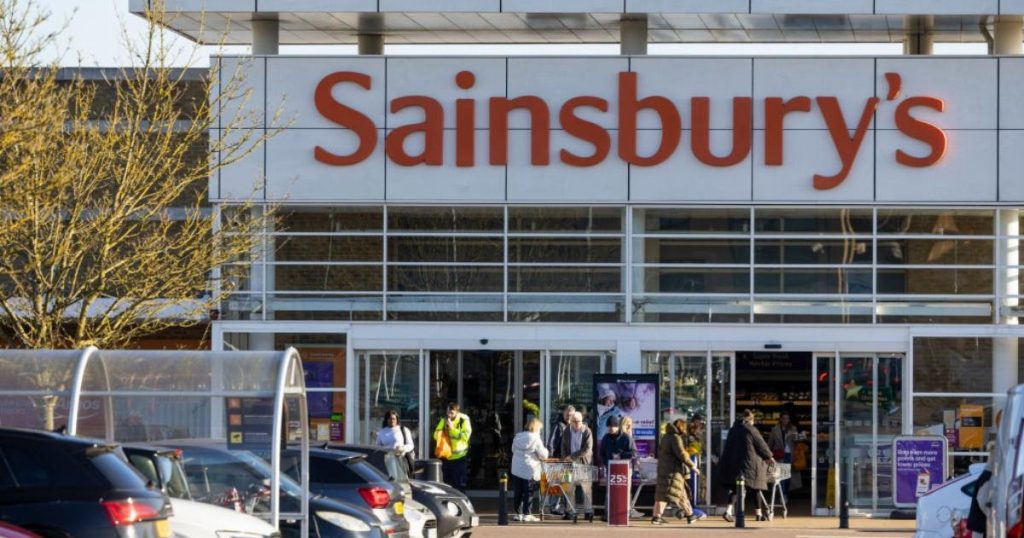Sainsbury’s Announces Significant Job Cuts and Store Overhaul Amidst Challenging Economic Climate
Sainsbury’s, one of the UK’s leading supermarket chains, has announced a major restructuring plan that will result in the elimination of over 3,000 jobs. This represents approximately 2% of its 148,000-strong workforce. The move comes despite the company reporting its "biggest ever trading period" and projecting substantial full-year profits between £1.01 billion and £1.06 billion. The cuts will predominantly affect senior management roles, with approximately 20% of these positions being eliminated. While the company acknowledges the impact of these decisions on its employees, it emphasizes the necessity of these measures to navigate a challenging economic landscape and enhance efficiency and effectiveness. Sainsbury’s has committed to exploring redeployment opportunities for affected employees and has recently implemented a 5% pay increase for its workforce to mitigate the impact of rising inflation.
The restructuring also involves the closure of all remaining 61 Sainsbury’s Cafes. This decision reflects a shift in consumer behavior, with the company observing declining usage of in-store cafes while witnessing increased popularity of in-store food halls. To streamline operations further, Sainsbury’s will discontinue its hot food, pizza, and patisserie counters, opting instead to make popular items available in regular grocery aisles. These changes aim to align the company’s offerings with evolving customer preferences and optimize resource allocation.
While Sainsbury’s projects significant profits, the company is actively pursuing cost-saving measures to achieve approximately £1 billion in annual savings. This drive for efficiency reflects the broader economic pressures facing businesses in the UK, including rising inflation and tax increases. This round of job cuts follows a previous reduction of approximately 1,500 roles in 2024, primarily affecting a contact centre in Cheshire. The company has cited increased costs due to tax hikes implemented in the October budget, further emphasizing the challenging economic environment.
The government has responded to Sainsbury’s announcement by reiterating the rationale behind the recent tax increases, emphasizing the need to restore economic stability and address public finances. However, the opposition has criticized the tax measures, referring to them as a "jobs tax" and urging for their reversal. The job cuts at Sainsbury’s underscore the complex interplay between economic policy, business decisions, and employment levels.
The list of Sainsbury’s cafes slated for closure spans various locations across the UK, impacting communities from Bamber Bridge to Wrexham. The closure of these cafes underscores the evolving retail landscape and the impact of changing consumer habits on in-store services. The transition towards alternative food offerings within the stores represents Sainsbury’s attempt to adapt to these changing demands and maintain its competitive edge. The complete list of affected cafes provides a tangible representation of the scale of this restructuring and its potential impact on local communities.
Sainsbury’s actions reflect the challenges faced by businesses navigating fluctuating economic conditions and evolving consumer preferences. The company’s decision to streamline operations, while difficult, is presented as a strategic response to these pressures, aiming to enhance long-term sustainability and competitiveness. The impact of these changes on both employees and local communities will likely be a subject of ongoing discussion and analysis. The supermarket giant’s move highlights the broader economic trends affecting the retail sector and the difficult choices businesses must make to adapt and thrive in a dynamic environment.
The job cuts and cafe closures represent a significant shift in Sainsbury’s operational strategy, reflecting the company’s efforts to adapt to a challenging economic landscape and evolving consumer behavior. While the projected profits suggest a degree of financial health, the pursuit of cost-saving measures and restructuring initiatives highlights the need for continuous adaptation and efficiency improvements. The broader implications of these decisions, including the impact on employment levels and local economies, warrant further consideration and analysis. Sainsbury’s actions underscore the complex interplay between economic factors, business strategy, and the overall retail landscape in the UK.


